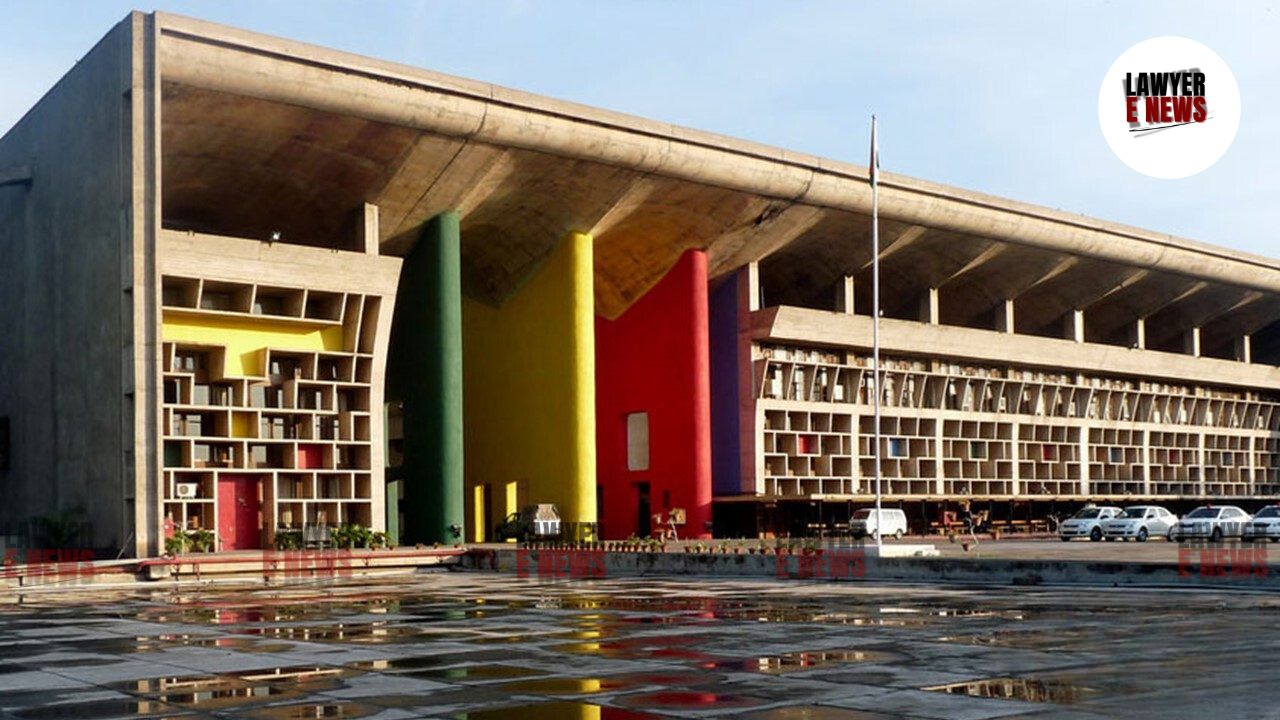-
by Admin
15 February 2026 5:01 PM



Punjab and Haryana High Court dismissed a petition for anticipatory bail filed by Baljinder Kaur under Section 482 of the Bharatiya Nagarik Suraksha Sanhita, 2023. The petitioner, facing allegations of cheating village residents out of ₹1.19 crore, sought pre-arrest bail. The Court held that custodial interrogation was essential for the investigation, and granting anticipatory bail at this stage could obstruct the inquiry. The petition was accordingly denied.
The case stems from an FIR (No. 112, dated 28/08/2024) lodged at Police Station Barnala, District Barnala, under Section 420 of the Indian Penal Code, 1860, accusing the petitioner, Baljinder Kaur, and her husband of defrauding multiple village residents, primarily women, out of ₹1.19 crore. The couple allegedly promised to double their money within two years, but the complainants claim they were cheated when the petitioner failed to return the funds.
After the FIR was registered, the petitioner approached the Sessions Court in Barnala seeking anticipatory bail, but the request was denied on September 10, 2024. The petitioner subsequently moved the High Court for relief, arguing that the allegations were false and motivated by vendetta.
The primary legal question concerned whether the petitioner should be granted anticipatory bail under Section 482 of the Bharatiya Nagarik Suraksha Sanhita, 2023, given the gravity of the allegations, the stage of the investigation, and the principles governing anticipatory bail.
The petitioner argued that the case was based on false claims, motivated by enmity arising from a separate FIR involving her family. She contended that the matter was civil in nature and did not warrant custodial interrogation.
Conversely, the State of Punjab argued that the seriousness of the allegations—cheating 13 complainants out of ₹1.19 crore—necessitated custodial interrogation for an effective investigation. The State emphasized that the investigation was still in its early stages, and granting bail would hamper the collection of crucial evidence.
Justice Rajesh Bhardwaj highlighted the need to strike a balance between protecting individual liberty and safeguarding societal interests. The Court emphasized that in cases involving large-scale fraud affecting public interest, societal concerns may outweigh personal liberty. Citing Gurbaksh Singh Sibbia v. State of Punjab, AIR 1980 SC 1632, the Court reiterated:
"The Court is to maintain a balance between the individual liberty and the interest of society. However, the interest of society would also prevail upon the right of personal liberty."
The Court underscored that custodial interrogation was critical for uncovering key facts in cases of public fraud and financial misdeeds. Relying on the Supreme Court’s judgment in State v. Anil Sharma, (1997) 7 SCC 187, the Court observed:
"Custodial interrogation is qualitatively more elicitation-oriented than questioning a suspect who is well ensconced with a favorable order under Section 438... Success in such interrogation would elude if the suspected person knows that he is well protected and insulated by a pre-arrest bail order."
Given the nature and gravity of the allegations, the Court concluded that custodial interrogation of the petitioner was necessary to retrieve crucial information and that granting anticipatory bail at this juncture would hinder the ongoing investigation.
The Court rejected the petitioner’s claim that the dispute was civil in nature, noting that the scale of fraud alleged, involving ₹1.19 crore from multiple victims, pointed to a serious criminal offense. The Court found that there was sufficient prima facie evidence implicating the petitioner in the alleged fraud, warranting further investigation under police custody.
Justice Bhardwaj referred to Section 482(2) of the Bharatiya Nagarik Suraksha Sanhita, 2023, which outlines the conditions under which anticipatory bail may be granted. The Court noted that the petitioner had failed to meet the statutory requirements, particularly in light of the need for effective investigation:
"Granting anticipatory bail to the petitioner at this stage would scuttle the ongoing investigation."
The Court dismissed the anticipatory bail petition, concluding that the petitioner did not qualify for relief at this stage due to the serious nature of the allegations and the ongoing investigation. The Court emphasized that its decision was not an expression of opinion on the merits of the case, which would be determined during trial.
Date of Decision: September 18, 2024
Baljinder Kaur v. State of Punjab
